I want to get the following sequence:
Is it possible to use one SelectMany to get such a sequence?
Minimal Working Example
static void Main()
{
var x = Enumerable.Range(1, 7).Where(n => n % 2 == 1);
var y = Enumerable.Range(1, 7).Where(n => n % 2 == 0);
var z = x.SelectMany(m => y, (m, n) => new int[] { m, n }).SelectMany(o => o);
foreach (int n in z)
Console.Write($"{n},");
Console.WriteLine("\b.");
}
